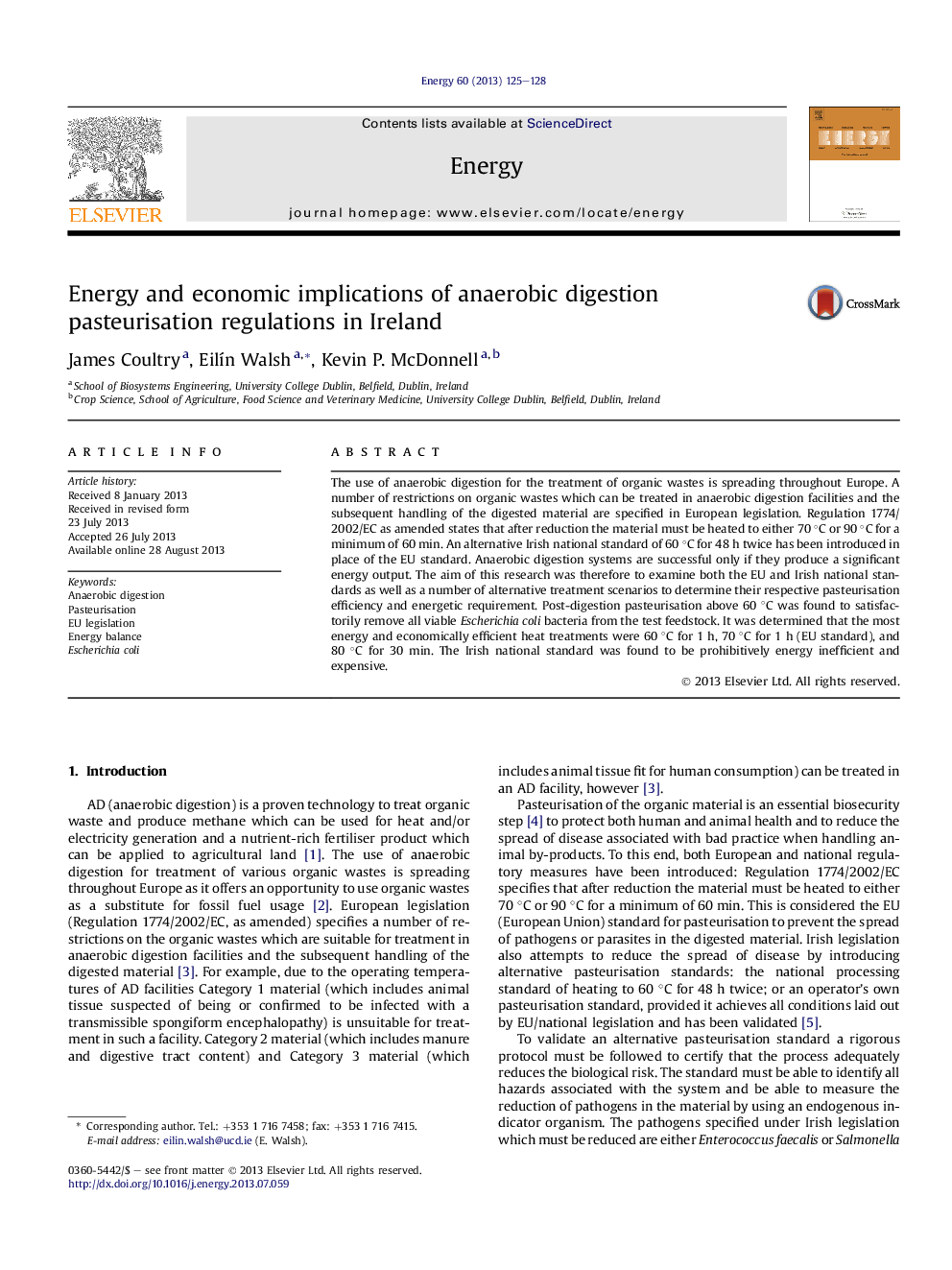| Article ID | Journal | Published Year | Pages | File Type |
|---|---|---|---|---|
| 1732613 | Energy | 2013 | 4 Pages |
•The use of anaerobic digestion to treat organic wastes is spreading throughout Europe.•AD facilities are successful only if they produce a significant energy output.•EU and national legislation impose pasteurisation controls which consume energy.•EU and Irish national standards and a number of alternate treatments were examined.•Most efficient treatments are 60 °C for 1 h, 70 °C for 1 h or 80 °C for 30 min.
The use of anaerobic digestion for the treatment of organic wastes is spreading throughout Europe. A number of restrictions on organic wastes which can be treated in anaerobic digestion facilities and the subsequent handling of the digested material are specified in European legislation. Regulation 1774/2002/EC as amended states that after reduction the material must be heated to either 70 °C or 90 °C for a minimum of 60 min. An alternative Irish national standard of 60 °C for 48 h twice has been introduced in place of the EU standard. Anaerobic digestion systems are successful only if they produce a significant energy output. The aim of this research was therefore to examine both the EU and Irish national standards as well as a number of alternative treatment scenarios to determine their respective pasteurisation efficiency and energetic requirement. Post-digestion pasteurisation above 60 °C was found to satisfactorily remove all viable Escherichia coli bacteria from the test feedstock. It was determined that the most energy and economically efficient heat treatments were 60 °C for 1 h, 70 °C for 1 h (EU standard), and 80 °C for 30 min. The Irish national standard was found to be prohibitively energy inefficient and expensive.
